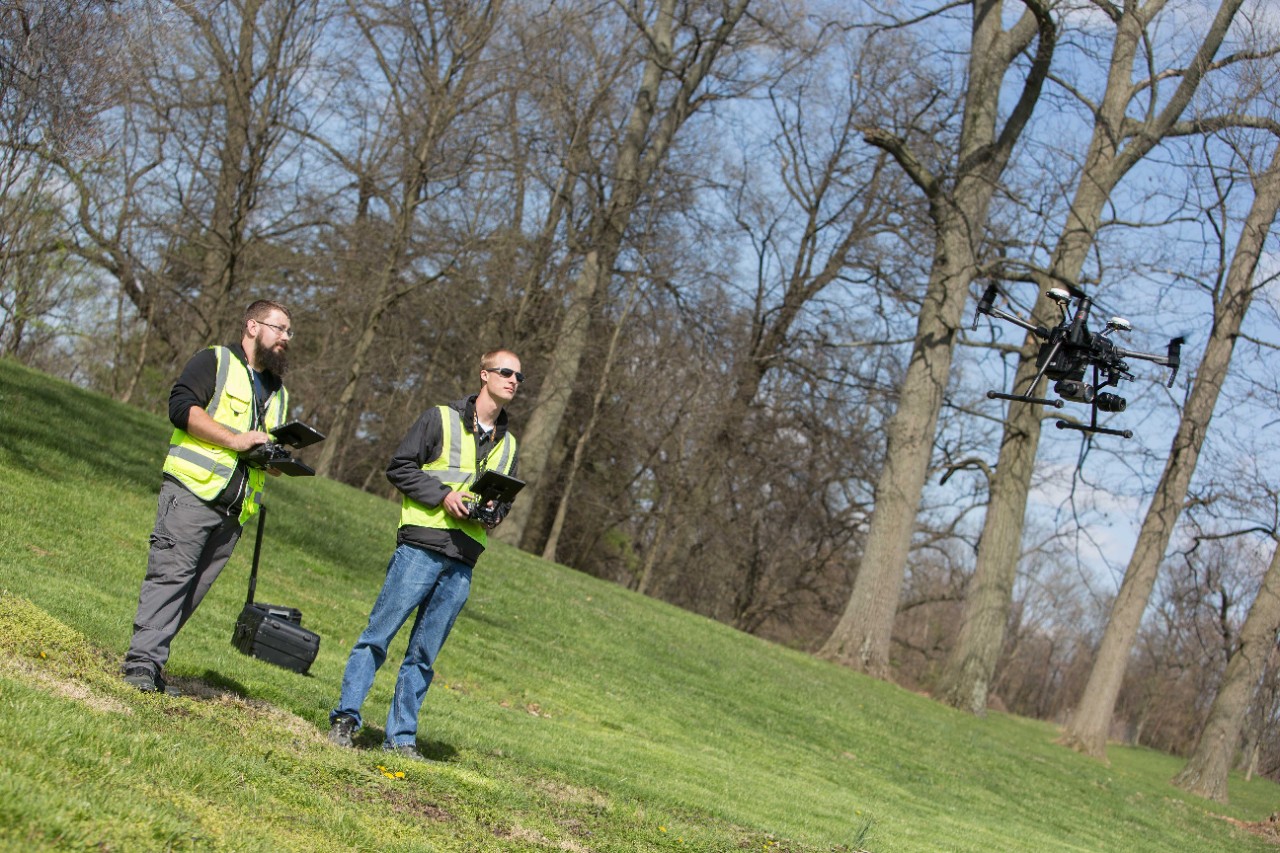
UC gets NASA grant to improve drone navigation
UC will work with a Pennsylvania tech company to run AI testing simulations
NASA awarded a small business grant to the University of Cincinnati and a Pennsylvania company to develop better autonomous navigation for drones.
UC is among 41 public institutions and 257 small businesses across the United States that will share $50 million in Small Business Innovation Research grants.
“NASA is working on ambitious, groundbreaking missions that require innovative solutions from a variety of sources, especially our small businesses,” NASA Deputy Administrator Pam Melroy said.
UC College of Engineering and Applied Science aerospace engineering professor Kelly Cohen will work with the company VISIMO, based in Carnegie, Pennsylvania, to develop a testing environment that helps evaluate the safety and stability of artificial intelligence models used in autonomous drones. Using a 3D simulation, the project will test the complex sensor fusion and decision-making routines needed for real-time autonomous navigation.

UC will work with the Pennsylvania company VISIMO to develop better autonomous navigation for drones as part of a NASA grant. Photo/Andrew Higley/UC Marketing + Brand
According to the grant application, the simulations will help put the artificial intelligence to the test in situations that feature cascading failures in emergency situations such as a sudden storm that knocks out a drone’s sensor or cameras.
The project aims to create a testing environment that can certify that algorithms used in autonomous drone flight are safe to use in the national airspace. It also will develop tools to validate the algorithms used in autonomous flight for prognostics, vehicle health, sensor fusion, decision-making and cooperative planning.
According to VISIMO, the project could benefit applications for telehealth, search and rescue, delivery and agriculture.
“Certification of autonomous aircraft is the first step towards operating beyond line of sight, which will revolutionize the use of these vehicles,” said Alex Moskowitz, the principal investigator for the grant and a data scientist at VISIMO.
Moskowitz said drones are being deployed in emergencies and to deliver supplies to people when roads and bridges become impassable.
"Kelly Cohen and his team are world-class experts in the field of autonomy,” said Alex Heit, vice president of partnerships and strategy at VISIMO. “Their partnership brings a wealth of knowledge to VISIMO's artificial intelligence and autonomy portfolio. We've seen historic success through partnering with Dr. Cohen on Air Force autonomy projects. Our NASA win marks the next stage in what we see as a rich, long-term partnership.”
Featured image at top: Bryan Brown and Austin Wessels operate a drone that UC used to capture traffic data in a 2018 project. Photo/Andrew Higley/UC Marketing + Brand
Impact Lives Here
The University of Cincinnati is leading public urban universities into a new era of innovation and impact. Our faculty, staff and students are saving lives, changing outcomes and bending the future in our city's direction. Next Lives Here.
Related Stories
Designing Access
February 17, 2026
Faculty-led collaboration brings typography, wayfinding and public input to transit infrastructure.
Get ready for your next job with a NEXT Mindset
February 17, 2026
University of Cincinnati students will discover how to prepare themselves for the workplace during the NEXT Mindset Professional Readiness Day on Feb. 24 at the 1819 Innovation Hub.
UC professor curates Little Women exhibition to accompany Playhouse in the Park production
February 16, 2026
The exhibition traces how artists shaped the visual legacy of Alcott’s beloved novel.
